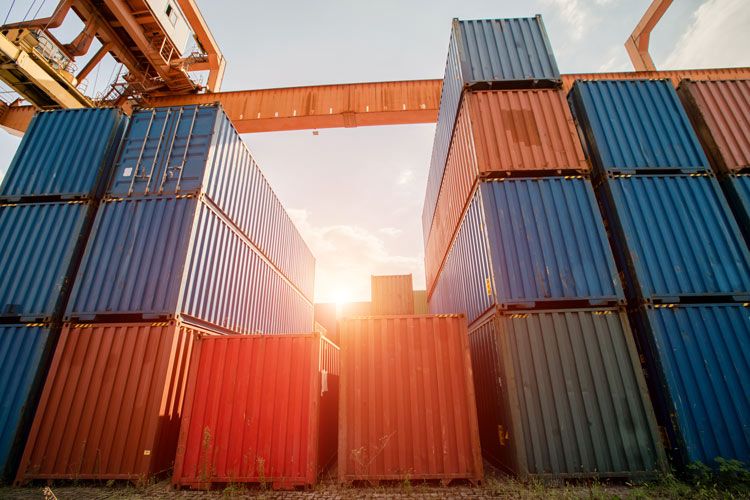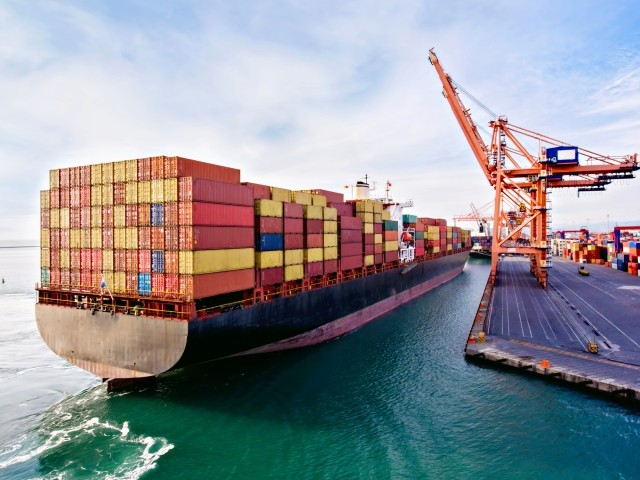Blog
Cargo Claims and the War in Ukraine: What You Need to Know
As the Russian invasion of Ukraine drags further into the spring, the world reacts in horror to images of shelled residential buildings, schools, and hospitals. Although the loss of human life is by far the most troubling, the war also influences a global supply chain that is already under stress from two years of a pandemic.

The conflict is also impacting cargo and transit claims. Many insurance carriers have issued notice of cancellation with respect to war, strikes, riot, and civil commotion and goods insured to/from/within Ukraine, Russia, the Black Sea Coast, and the Sea of Azov.
When your expected cargo is missing or damaged, the steps you take—and the time it takes you to make them—can determine whether you are reimbursed for your losses. This blog post offers guidance on what you need to do to file a successful cargo claim.
What Constitutes a Loss Under a Cargo or Transit Policy?
| First, let’s examine what constitutes a loss under the marine cargo policy. For a cargo loss to be recoverable, the following conditions must be met: | ||
|---|---|---|
|
||
|
||
|
||
|
||
Prompt Notification: Timing is Everything
Prompt notification is critical to ensure that your insurer’s rights of recovery are protected in the event of a claim. There are statutory and contractual time limitations requiring a claimant to file a written claim against carriers that vary by type of shipment, mode of transport, and jurisdiction.
When loss or damage is not discovered until the shipment has been completely unpacked or opened, a written claim must be filed against the freight carrier for loss or damage within strict time limits. If these time limits are not met, the freight carrier may be relieved of liability for the damage or loss.
Prompt notification of a loss is especially critical during a time of war or other conflict. Insurance policies are very specific with respect to proximate cause of the damage. The more time that passes, the more difficult it can be to prove when and how the damage occurred.
For example, did damage occur to a package because the delivery van was in a routine traffic accident in Ukraine? Or did the damage occur because the package was inside a van that was shelled as part of the Russian invasion? If it is the latter, the proximate cause is the war. If it is the former, even though shelling may be occurring in the region, the war is not the proximate cause.
To make the correct determination, investigators will interview the driver and look at the physical evidence. The more time that passes, the more difficult—if not impossible—those actions become during a time of war.
How to Report a Cargo or Transit Claim
In the event of a loss, you will need to gather all available claims documentation to make a successful report. Here are the forms of documentation you will need to make a claim:
- Bills of lading (original documents or copies of both sides)
- Copy of the shipper's invoice for the entire shipment
- Copy of the packing list detailing the merchandise shipped in a particular carton, case, or another shipping unit
- Certificate of insurance (original or duplicate copy, if applicable)
- Confirmation of non-delivery from the carrier, if applicable
- Return freight bill, if applicable
- Evidence of loss or damage
Keep in mind that exclusions may apply. The key is to get past the insuring agreement (coverage grant). At that point, the burden of proof is on the insurer to show that an exclusion applies.
A strong argument should be made for coverage where the impact renders the property unusable or uninhabitable. Placing the burden of proof on the insurer is important because the insurer may not be able to meet its burden, and courts interpret ambiguities in favor of the insured.
Subtle Distinctions in Wording Matter
After you report a claim, the fun begins with the subtle wording distinctions of what does and does not constitute “damage.”
As a claim consultant and advocate, I don’t have to show that the policy applies in every scenario.
The courts tend to interpret ambiguity in favor of the insured. Therefore, we can expect some creative writing and legal arguments on cargo claims as part of the effort to get past the insuring agreement and push for coverage. We need to prove that the insuring agreement/coverage promise has been met and that the exclusion is not completely applicable to the facts.
In all communication with the insurer’s claims adjuster, it’s important to share complete information with the proper tone and cadence. You may want to have your broker/claims consultant present during phone interviews or adjusters’ inspections. Their guidance may help you avoid a response that could be detrimental to establishing coverage.
Here are some other tips for communicating with claims adjusters.
- Make sure you understand what is meant by proximate cause/direct physical loss. Using the wrong term can raise coverage questions.
- Answer questions if you have first-hand knowledge. “I don’t know” is an appropriate response if you don’t have first-hand knowledge.
- Write down any questions you can’t answer and tell the adjuster you will respond later. Then, ask your broker/claims consultant for assistance.
- Don’t give the adjuster documents at the site during the inspection. Instead, make a list of all requested documents and give copies of the documents to the adjuster through risk management and the claim consultant. Be sure to keep track of what documents you provide.
What Does the Future Hold for Cargo and Transit Exclusions?
The insurance industry is being cautious as it watches the war in Ukraine. No one knows how long the conflict will last or if it will escalate to involve other countries. These two sentences don’t seem relevant to the war in Ukraine. Although the future is uncertain, what we do want to stress to our clients is the urgency of a timely response to any damaged cargo so that a prompt investigation can take place.
If you have additional questions or concerns about how your policies will respond to the current crisis in Ukraine or other types of conflicts, please contact your Woodruff-Sawyer claims consultant. We will assist you throughout the claims process and advocate for coverage on your behalf.
Author
Table of Contents














